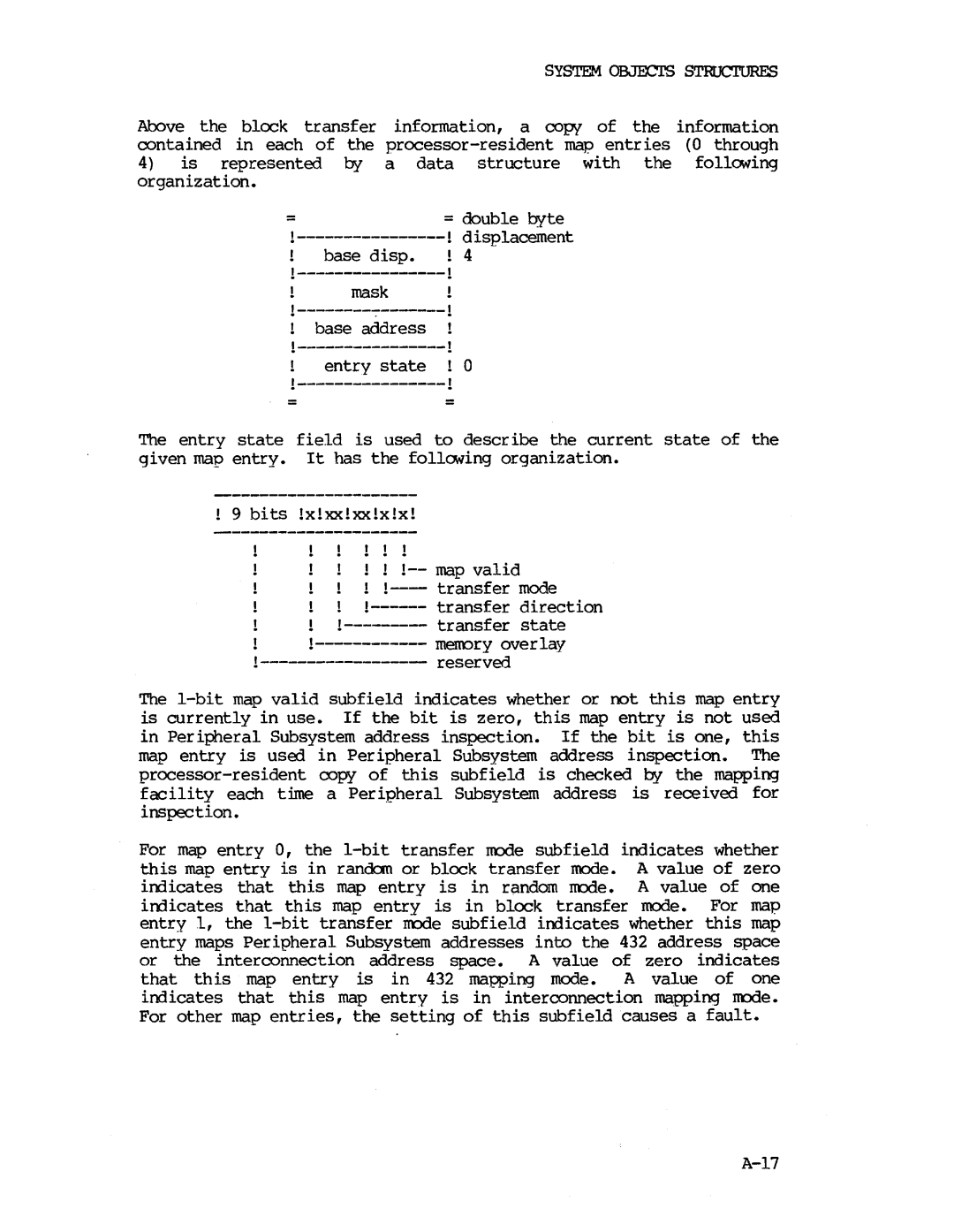
SYSTEM OBJECTS STRUCTURES
Above the block transfer information, a copy of the information contained in each of the processor-resident map entr ies (0 through
4) is represented by a data structure with the following organization.
= | | = double byte |
1 | ---------------- | 1 | displacement |
1 | base disp. | | 4 |
1 | ---------------- | 1 | |
1 | mask | 1 | |
1 | --------7------- | 1 | |
1 | base address | 1 | |
---------------- | |
1 | entry state | 1 a |
1 | ---------------- | 1 | |
= | | = | |
The entry state field is used to describe the current state of the given map entry. It has the following organization.
1 9 bits | lx1xx1xx1x1xl | |
| 1 | 1 | |
| 1 1 1-- | map valid |
| 1 1 | ---- | transfer mode |
| ! 1------ | transfer direction |
| 1--------- | transfer state |
1 | 1------------ | memory overlay |
1------------------ | | reserved |
The I-bit map valid subfield indicates whether or not this map entry is currently in use. If the bit is zero, this map entry is not used in Peripheral Subsystem address inspection. If the bit is one, this map entry is used in Peripheral Subsystem address inspection. The processor-resident copy of this subfield is checked by the mapping facility each time a Peripheral Subsystem address is received for inspection.
For map entry 0, the I-bit transfer mode subfield indicates whether this map entry is in randan or block transfer mode. A value of zero indicates that this map entry is in random mode. A value of one indicates that this map entry is in block transfer mode. For map entry 1, the I-bit transfer mode subfield indicates whether this map entry maps Peripheral Subsystem addresses into the 432 address space or the interconnection address space. A value of zero indicates
that this map entry is in 432 mapping mode. A value of one indicates that this map entry is in interconnection mapping mode. For other map entries, the setting of this subfield causes a fault.

